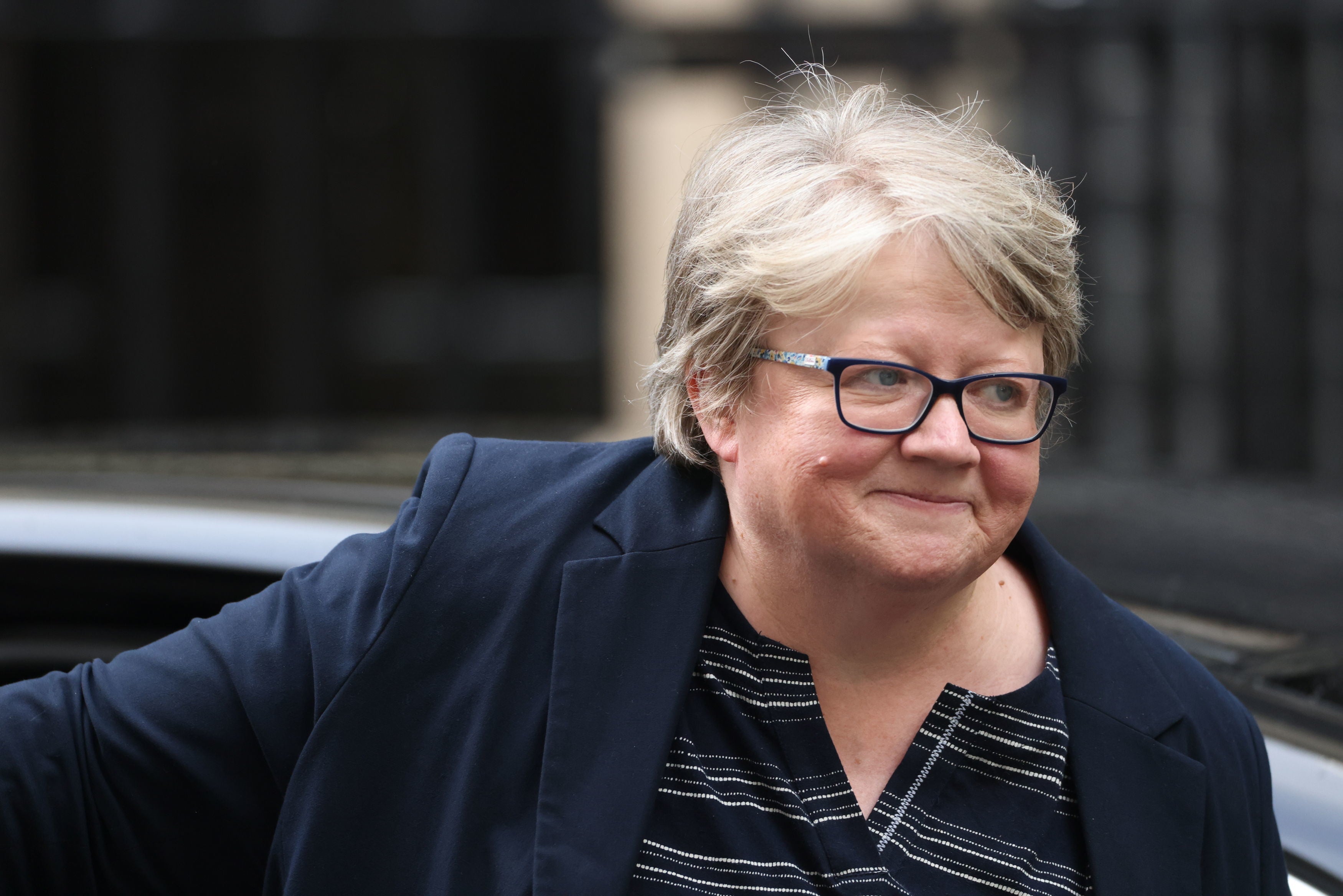Thérèse Coffey could be an inspired appointment as health secretary
The deputy prime minister surprised the Commons with her own story of waiting nine hours in A&E, writes John Rentoul


Thérèse Coffey’s debut as health and social care secretary in parliament got off to a bad start. She is not a silver-tongued public speaker, stumbling over her words a few times, and repeating twice her leaden call for a “national endeavour” to help the NHS, as she delivered a statement with a curiously narrow focus on GP appointments.
Her sharp-tongued opponent, Wes Streeting, mocked her promise of “cloud-based telephony” as the solution to trying to be the first to get through to the surgery – the telephone, he asked, is that “cutting-edge modern technology?”
Streeting contrasted Coffey’s “expectation” that people should be able to see their GP within two weeks with the 48-hour target under the Labour government.
Coffey’s response to that was weak. The 48-hour target didn’t produce better outcomes, she said, implying that GP practices gamed the system by making it harder to book. In which case, why would a two-week target be any better? This was a point made later by Jeremy Hunt, one of Coffey’s predecessors. “If targets were the answer, we would have the best access in the world,” he said. “GPs already have 72 targets; adding a 73rd won’t make a difference.”
I’m not sure that is true: it depends on whether they are the right targets and how they are pursued.
But Coffey said something else in her response to Streeting that should make her detractors stop and think. Streeting pounced on the absence of any reference to the change in the target for A&E departments that had been the subject of media speculation, and asked for reassurance that the current four-hour target, which is being met for only 72 per cent of A&E patients, would not be watered down.
It had been suggested that the target might be replaced by a target for average waits, or for the time taken to make an initial assessment of patients. But Coffey was having none of it. “There will be no changes to the target for a four-hour wait in A&E,” she said. “I believe it matters,” she went on. “I’ll give you a personal experience. Just in July, I went to A&E. I waited nearly nine hours to see a doctor, and I still didn’t get any treatment. I was asked to go back the next day. So I went to a different hospital, just three miles away, and I was seen and treated appropriately.”
To keep up to speed with all the latest opinions and comment, sign up to our free weekly Voices Dispatches newsletter by clicking here
Armed with her own story, she was suddenly able to turn her statement to her advantage. Instead of a politician trading statistics at the despatch box, she was a patient who had endured inadequate service from the NHS and who sounded as if she was determined to sort it out.
“That’s the sort of variation that we are seeing across the NHS,” she said, explaining that she intended to improve NHS data and to use local experts to “prioritise those patients who are not getting the service they should expect”.
Instead of a politician offering platitudes – in her statement she had said she would be “proactive not prescriptive” – she had become a manager with patient experience. This is the Coffey who, as work and pensions secretary used to make unannounced visits to jobcentres, and who acquired a formidable command of the detail of her brief.
If she can bring that kind of rigour and attention to detail to the NHS, and in particular to the problem of why its performance is so different in different places, she may turn out to be a good health secretary. On the other hand, it may be that the problems of the NHS are so serious and so big that no single politician could make a difference. But in her first outing in her new role she showed that she may be a more difficult opponent than Labour expected.



Join our commenting forum
Join thought-provoking conversations, follow other Independent readers and see their replies
Comments